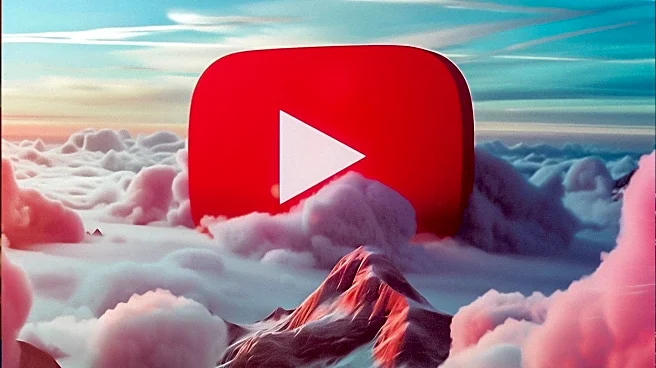What's Happening?
Queer YouTubers have played a pivotal role in transforming LGBTQIA+ representation, particularly for individuals in rural areas with limited exposure to queer communities. On National Coming Out Day, USA TODAY highlighted the impact of these creators, who have shared their personal journeys and experiences on platforms like YouTube. Prominent figures such as Connor Franta, Tyler Oakley, and Gigi Gorgeous have provided a window into queer lives, offering validation and support to viewers who may feel isolated. The platform's intimate and diverse content has allowed queer individuals to see themselves represented in ways mainstream media often fails to provide.
Why It's Important?
The influence of queer YouTubers extends beyond entertainment, offering a sense of community and acceptance to viewers who may lack representation in their physical environments. This digital visibility has contributed to broader societal acceptance and understanding of LGBTQIA+ issues, fostering a more inclusive culture. The personal stories shared by these creators have empowered many to embrace their identities, highlighting the importance of representation in media. As these creators continue to evolve, their impact on LGBTQIA+ visibility and acceptance remains significant, shaping public perceptions and encouraging dialogue around queer issues.
What's Next?
As the landscape of digital media continues to evolve, queer creators may increasingly shift their focus to emerging platforms like TikTok and podcasting, expanding their reach and influence. The ongoing dialogue around representation and diversity in media may lead to more inclusive content across various platforms, encouraging mainstream media to follow suit. The legacy of these YouTubers may inspire new generations of creators to share their stories, further enriching the digital space with diverse voices and perspectives.
Beyond the Headlines
The success of queer YouTubers highlights the power of digital platforms in democratizing media representation, allowing marginalized voices to be heard and celebrated. This shift towards more personal and diverse storytelling challenges traditional media norms and encourages a broader understanding of the complexities within the queer community. As digital media continues to grow, the role of these creators in shaping cultural narratives and promoting acceptance will likely expand, influencing how society perceives and interacts with LGBTQIA+ individuals.








